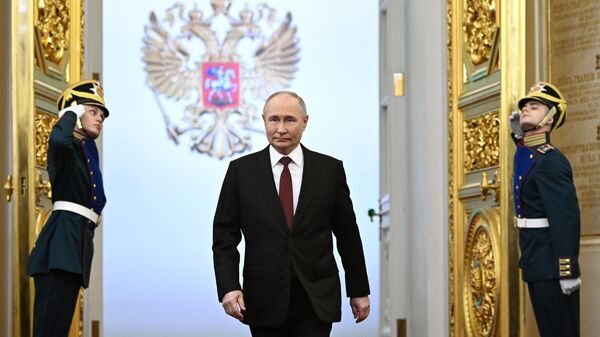International Demands for Transparent Investigations Into Mass Graves in Gaza Amidst Allegations of War Crimes
The spine-chilling discovery of mass graves in Gaza has echoed globally, with international calls for independent investigations to ensure justice is served.
Published April 27, 2024 - 00:04am

Image recovered from alhurra.com
The harrowing revelations of mass graves discovered in Gaza's Nasser Hospital following an Israeli military operation have ignited international outcry and prompted demands for independent investigations. Satellite imagery and social media video analysis by 'The New York Times' and reports from Palestinian Civil Defense offer grim insights into the extent of the casualties and the conflicting narratives surrounding the number of deceased, initially counted at 283 and later updated to 392.
In gut-wrenching testimonies, officials from Gaza allege the existence of mass graves predating the Israeli raids, accusing Israeli forces of adding bodies to these sites, a claim that gained credibility as images showed signs of interference by Israeli machinery. However, the Israeli military has categorically denied these allegations, asserting that no new graves were dug or bodies added by their forces.
The Palestinian Civil Defense in Gaza further claimed that at least 20 individuals were buried alive, with evidence suggesting torture prior to execution, and bodies found in plastic bags, accelerating decomposition. Moreover, allegations of organ theft have also surfaced.
The international community, including the United States, the European Union, and human rights organizations like Amnesty International, has called for comprehensive, independent inquiries to ascertain the truth behind these deaths and potential violations of international law. U.S. National Security Advisor Jake Sullivan has asked Israel for answers, while international bodies emphasize the urgent need to preserve evidence to ensure accountability.
These mass graves, also discovered in Gaza's Shifa Hospital, showcase potential war crimes, with bodies revealing signs of inhumane treatment such as shockingly shallow burials. The distressing experiences of families who finally found their loved ones are symptomatic of a broader pattern of violence that points to systematic targeting by Israeli forces, a claim Israel disputes.
Amidst these findings, approximately 8,000 Palestinians remain unaccounted for. These cases are a chilling testament to the scale of the tragedy in Gaza. As graves surface, the sorrowful task of matching names to the deceased unfolds, with reports alleging execution of unarmed civilians and the concealment of corpses rendering many lives faceless and nameless amidst the ruins of conflict.
With international pressure mounting, the truth behind these mass graves in Gaza lies beneath layers of fear, grief, and geopolitical tension.
The tragic unfolding of this humanitarian crisis has grabbed headlines worldwide, with the dire situation in Gaza inciting a complex web of diplomatic debates. As forensic teams work tirelessly amid the rubble of bombed structures to exhume bodies, the painstaking work of identifying the deceased is further complicated by the lack of proper forensic facilities and international support.
Human rights organizations are sounding alarms over the distressing precedent this discovery of mass graves may set. The United Nations has reiterated its stance on the imperative for both sides of the conflict to adhere to international humanitarian law, which strictly prohibits targeting non-combatants and dictates the dignified treatment of casualties. The situation has also heightened the debate over the need for a lasting ceasefire and renewed peace talks between Israeli and Palestinian authorities.
The Palestinian Ministry of Health has stated that amidst the chaos, their resources are being stretched beyond limits, as medical personnel also report strikes on healthcare infrastructure which complicates both the treatment of the wounded and the identification process of those killed. Notably, Israel Defence Forces (IDF) maintain that their operations in Gaza are targeted against Hamas and other militant factions, and that significant effort is made to minimize civilian casualties.
Activists and grieving families in Gaza are using digital platforms to bring attention to the stories of those they have lost, generating a powerful narrative that defies borders and calls for solidarity. Social media hashtags have become digital memorials, giving names and stories to some of the nameless victims caught in the crossfire. Each personal story shared online contributes to the mounting evidence that will be used by investigators looking into potential human rights violations.
The path to clarity is steeped in bureaucracy, as international organizations deliberate on the best course of action. With numerous stakeholders involved, the process of initiating a formal investigation by an independent international body presents itself as logistically and politically intricate. There are pressing concerns over whether the voices of victims will be adequately represented and respected in these proceedings and what form justice will take once the full extent of the tragedy is unveiled.
As the international community grapples with the ethical implications of this catastrophe, NGOs, independent journalists, and human rights defenders on the ground in Gaza are collecting testimonies and evidence, which they hope will contribute to a transparent inquiry. These efforts are paramount in safeguarding the integrity of the investigation against potential obfuscation or the erosion of evidence due to the volatile situation on the ground.
It is clear that the road to reconciliation and the restoration of trust between the conflicting parties will be arduous. Meanwhile, the world watches on, as the international legal machinery begins the lengthy process of unraveling the complex mosaic of these disturbing events, and the search for truth, justice, and accountability continues in the aftermath of one of the darkest chapters in Gaza's history.

:quality(70)/cloudfront-eu-central-1.images.arcpublishing.com/irishtimes/RZY6YBKSIJABJWI3MSPZXTI4I4.jpg)





